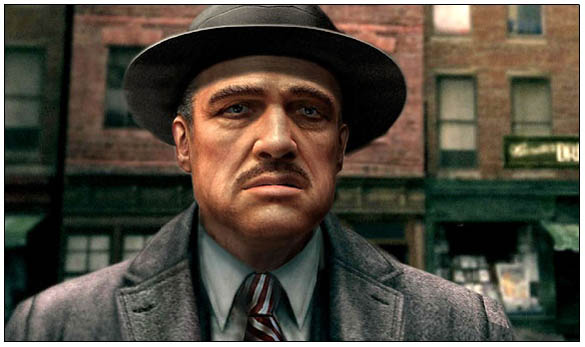
“What ultimately sets gaming apart from prefabricated media like television and books is that the consumer is in control of the action; the consumer is the protagonist of whatever story the game might tell.”
Seth Schiesel affirms this in an article on The Godfather video game coming out early next year (“How to Be Your Own Godfather,” NY Times, July 10, 2005 – also audio slideshow narrated by Schiesel). Schiesel’s article intrigued me from the view point of the movie junkie and the book lover. The Electronic Arts team that created this video game, used scenes and characters from the first Godfather to create a virtual universe where the players can manipulate the plot and create their own narrative. This player becomes the ideal reader that Flaubert and Borges dreamt about, and that the French literary theorists wrote about. Reading/playing becomes writing. The desire to directly involve the reader/audience in the creative act can be traced to the notion of catharsis in Greek tragedy, to Shakespeare’s play inside a play, to the second part of Don Quijote and so on, but it is now, thanks to electronic media, that the concept becomes reality, a virtual reality with all its possibilities yet to be explored.
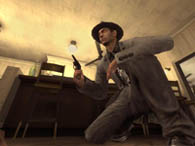
![]()
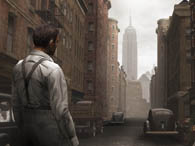
![]()
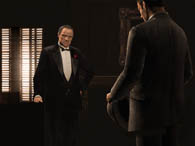
Much has been said about the difficulty to faithfully adapt books to film. García Márquez, whose first love is film, defends his refusal to sell the rights of One Hundred Years of Solitude to Hollywood, saying that the screen robs the viewer the freedom of completing the characters of the novel in his imagination. His readers can, for instance, identify José Arcadio Buendía with an uncle or a grandfather. But, he argues, if that character were to be played by Robert Redford, that freedom of association would be lost. It would also be quite difficult to re-create on film the complex time structure of García Márquez’s novel, or to render credible the many instances of magical realism that, when reading, one doesn’t doubt for a second. Could this be done using electronic media?
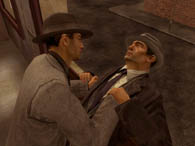
![]()
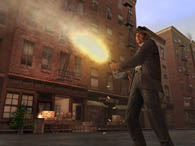
![]()
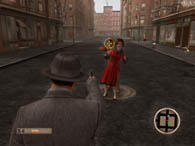
The executive producer of the Godfather video game, David DeMartini, talks about time linearity in film, usually limited to 80 -120 minutes, in which the director has to provide his narrative version of a book. What is interesting in the use of a movie, based on a novel, as a video game is that the player actually goes through the story living it. Here, he doesn’t only complete the characters in his imagination; he is his own character. Time is not limited or externally imposed upon the player/viewer as in film, he actually has 20, 30, 40 hours to experience and deal with the many choices he has as a character of the narrative. What we have here is not only the ideal reader; it’s the ideal fiction. Brando, who absolutely bought into this project, puts it clearly; “It’s the audience, really, that’s doing the acting.” Incidentally, the BBC reports today that a similar video game franchise is to be made from the Jason Bourne novels of Robert Ludlum – or rather, from the popular films starring Matt Damon adapted from Ludlum’s books.
Francis Ford Coppola, on the other hand, disapproves of the game as a typically violent kill and get killed video game. Seth Schiesel makes an important argument in favor of games bringing the Grand Theft Auto series as a parallel to the Godfather, by saying that there is something more than just violence in these kinds of video games.

![]()
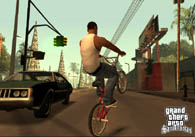
![]()
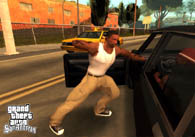
What is exciting is the game’s form. In G. T. A. the player has an entire city to explore. There are missions and a story available, and plenty of violence, but there is also the freedom one has to experience an open-ended virtual urban environment. I dare to add: what I see here is the book of the future.
